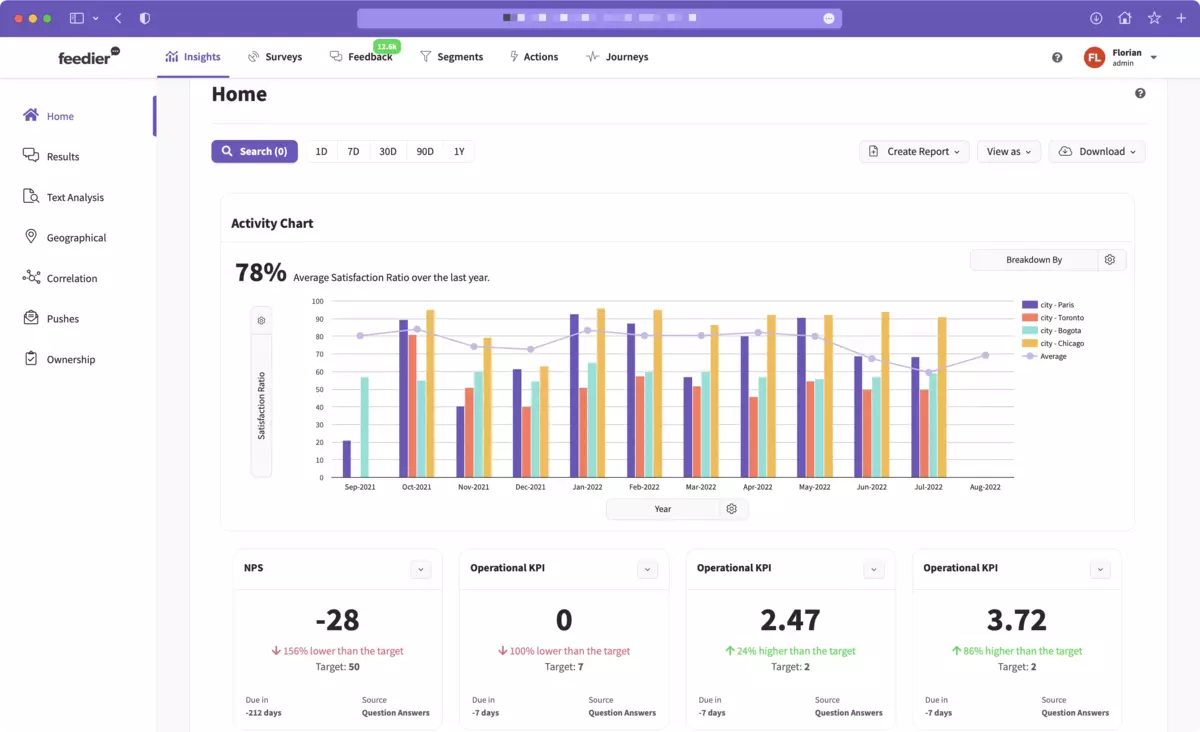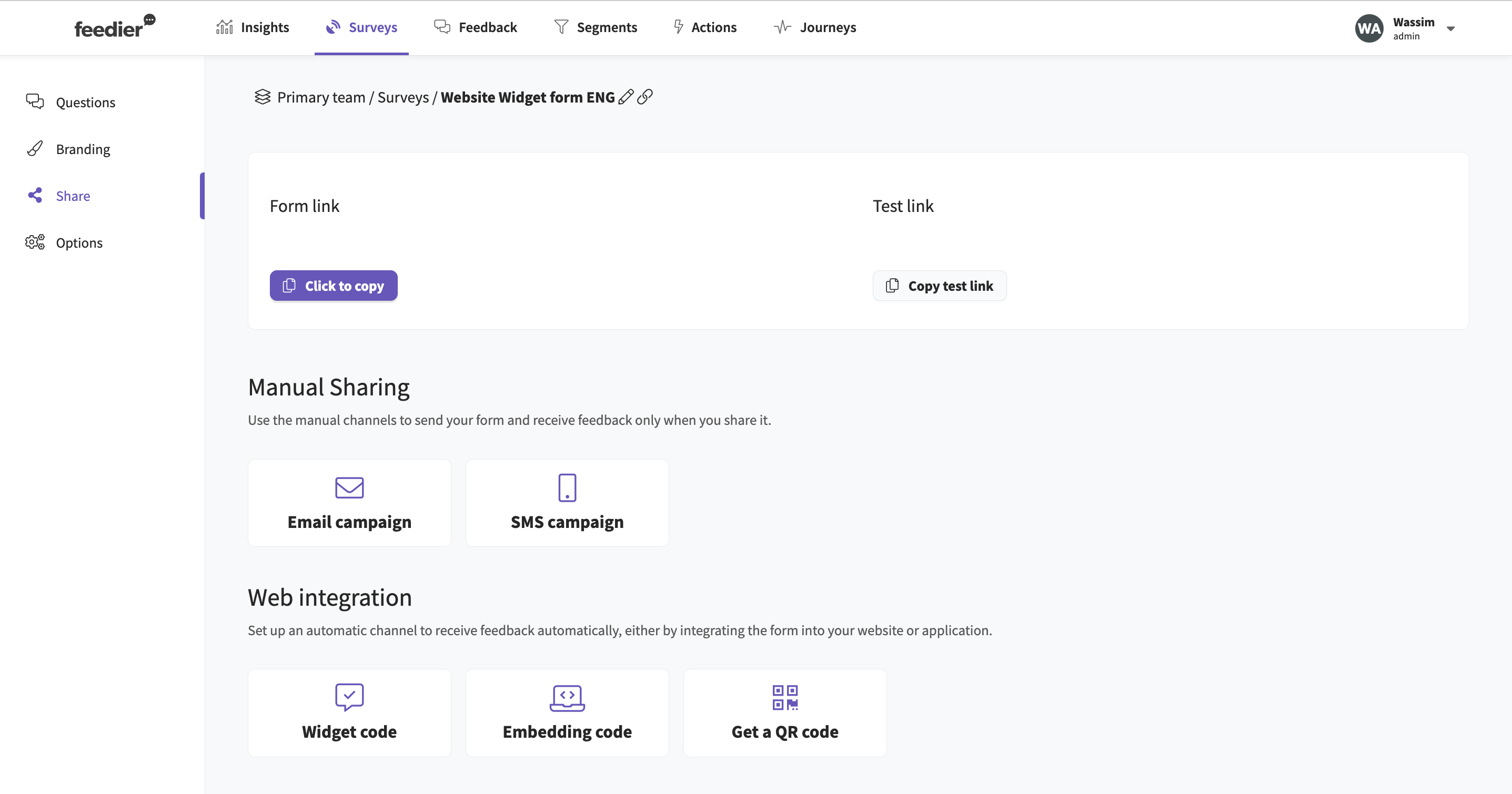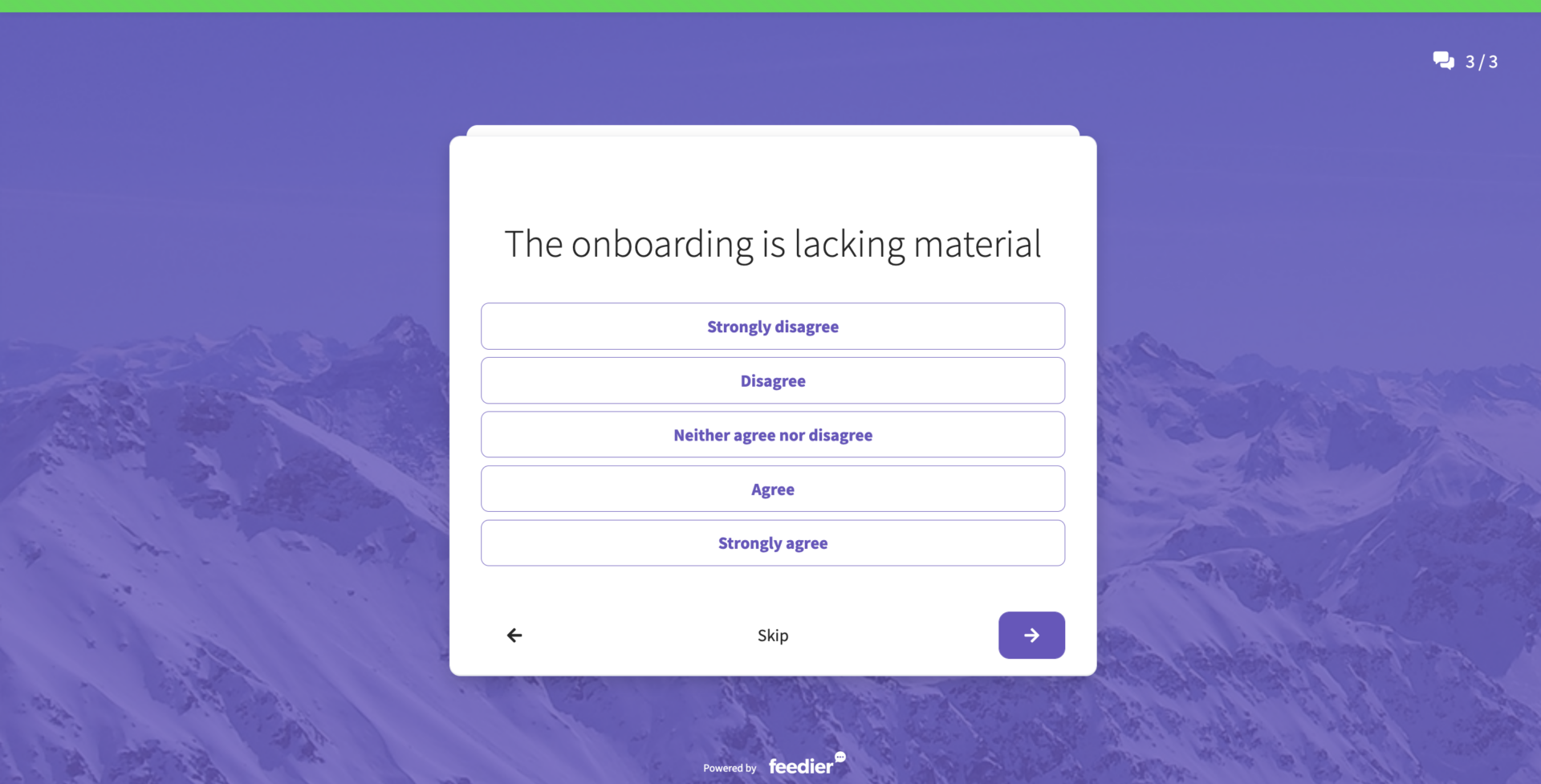Businesses can sometimes be too self-centered and forget how important their customers’ feedback are. This can cause their clients to lose trust in them, which can cause them to lose all of their customers. But asking customers for feedback can help you start a two-way conversation that will help you better understand their needs. Feedback, whether it’s given in person or online, can show you how to improve your services and better serve your customers and prospects in the Experience Economy of today.
In light of the GDPR, we do understand your worries about Personally Identifiable Information (PII) and how it affects customer feedback. Feedback can be about a wide range of things, but it is still a personal subject that needs to be handled carefully.
At Feedier, we care about our customers’ privacy, so we’ve put in place strong means to make sure the data we collect is safe and in line with GDPR rules.
Customer feedback in the era of GDPR: Is it safe?
The answer is yes. In 2018, the word “GDPR” sent shakes through the roots of many businesses, especially those that collect customer feedback. The General Data Protection Regulation (GDPR) has made more and more people want to know what they need to do to follow the rules and still get feedback in a safe way. If you work with personal data of EU data users or do things in the EU, there are a few things you should think about. I will give you a good place to start in this Feedier post.
GDPR rules may not apply if you get feedback without identifying the person and don’t use personal information. But keep in mind that GDPR has a broad idea of what personal data is.
When asking for feedback, you should be careful if you ask for personal information like an email address, name, or other information that can be used to identify someone. The GDPR gives you a lot of responsibilities, and we will talk more about these duties.
Types of customer experience platforms you can use
Remember that customer feedback is everywhere and can be gathered with many different tools. The sections below cover the most important categories and can save you from being charged with GDPR fines.
First, do you really know how to collect actionable feedback to improve your product/service?
360 Voice of Customer platforms (VoC)
360 Voice of the Customer platforms like Feedier are becoming more and more important for online businesses. This is because they are so important for improving customer experience projects and making sure GDPR compliance. By following the GDPR’s strict rules on data protection, these platforms build confidence among their users.
These customer experience platforms that are compliant with GDPR make it easy for visitors to share their experiences without interrupting their online journey. Also, they are great at getting real-time feedback, which allows companies to quickly fix any problems and improve their services while keeping users’ privacy and data safe.

Survey Tools
Platforms like Feedier are a current way to get customer feedback that is also compliant with GDPR. These tools, which often look like a feedback button or an email, SMS campaigns, have become more popular as digital feedback has changed. Some focus on specific areas, while others, like Feedier, focus on making the customer experience better. In the past, feedback tools were known for having long surveys. But today’s GDPR-compliant platforms are getting shorter and more interactive and intuitive, making sure that respondents don’t have to do much work and building trust through strict data security and privacy measures.
Online Review Tools
 Platforms like Feedier are a current way to get customer feedback that is also compliant with GDPR. These tools, which often look like a feedback button or an email, SMS campaigns, have become more popular as digital feedback is changing. Some focus on specific areas, while others, like Feedier, focus on making the customer experience better.
Platforms like Feedier are a current way to get customer feedback that is also compliant with GDPR. These tools, which often look like a feedback button or an email, SMS campaigns, have become more popular as digital feedback is changing. Some focus on specific areas, while others, like Feedier, focus on making the customer experience better.
In the past, feedback tools were known for having long surveys. But today’s GDPR-compliant platforms are getting shorter and more interactive and intuitive, making sure that respondents don’t have to do much work and building trust through strict data security and privacy measures.
How to stay GDPR compliant while collecting feedback
Lawful Data Processing
The GDPR mandates that data must be processed “lawfully.”
Soliciting feedback involves data processing, which must be conducted lawfully according to GDPR guidelines. But what constitutes lawful processing?
The GDPR provides a comprehensive definition of “lawful processing” in Article 6, subparagraph 1. For our purposes, we need to focus on two key aspects of this definition:
Processing is lawful if…
- The data subject has granted consent for the processing of their personal data for one or more specific objectives, or
- Processing is necessary for the legitimate interests pursued by the data controller or a third party, provided that such interests do not override the data subject’s interests, fundamental rights, or freedoms.
In simpler terms, utilizing an individual’s data to gather feedback is permissible if:
- The individual has explicitly given consent (i.e., they have agreed to the data usage), or
- A compelling case can be made that collecting feedback aligns with your organization’s legitimate interests.
By adhering to these GDPR guidelines, businesses can ensure they are processing customer data responsibly and in compliance with data protection regulations.
Legitimate Interests

Under the GDPR, the best reason to check for feedback is that it’s in your and your customers’ best interests to do so. If you can show that this is true, you can move forward with getting customer feedback and using it for the goals you’ve set. How can you show that? With a balance test!
This test can find a balance between your “legitimate interests” and the “interests or fundamental rights or freedoms” of the person whose data you are processing. As long as you make it as intuitive as possible for customers to give you feedback, no reasonable person will say that you fail this balance test.
But if you start acting shady, like not replying to feedback, sending annual surveys when transactional feedback forms would work better, or not asking customer-focused questions, you’re tiptoeing closer to the line where you would fail this test. Don’t do it!
Consent
The second of the two potential legal grounds for collecting feedback under GDPR is ‘consent’. If you opt for the consent pathway, consider the following points:
- For non-sensitive data, you require “unambiguous, affirmative” consent, not “explicit” consent. Instead of using a checkbox, employ a clear and unmistakable notice such as “By submitting this form, you agree that we will process your data in accordance with our privacy policy.”
- Once you have relied on consent, you cannot retroactively switch to another basis for processing. If an individual declines consent, you cannot proceed to send a survey based on “legitimate interests.”
- The GDPR stipulates that “the controller shall be able to demonstrate that the data subject has consented to the processing of his or her personal data.” In other words, maintain records of how and when consent was granted.
Regardless of the legal ground you utilize, we recommend establishing a clear separation between your feedback processes and marketing activities.
By doing so, customers will not inadvertently receive promotions or marketing emails solely because they submitted a feedback form, thus maintaining their trust and preserving your corporate integrity.
Data Minimisation
The principle of data minimization, as outlined in the GDPR, posits that an organization should process only the necessary personal data required to achieve its processing objectives, barring a few exceptions.
So, what is the minimum data needed when collecting customer feedback? Is it essential to gather every detail, such as job title, company size, country, IP address, browser, and device ID, to obtain the necessary feedback?
The answer is no.
The GDPR, however, does not explicitly define the extent of data that can be collected. Evidently, this depends on your organization’s specific objectives for collecting and utilizing feedback data, which may vary for different individuals or groups sharing similar characteristics.
To ensure compliance with data minimization principles while gathering customer feedback, you must first establish a clear understanding of the data requirements. This may involve individual assessments or evaluations based on shared characteristics among groups. Periodic reviews of data processing are also recommended to verify the relevance and adequacy of the personal data retained, and any unnecessary data should be promptly deleted.
By following these guidelines, organizations can maintain a corporate and GDPR-compliant approach to collecting customer feedback while adhering to data minimization principles.
Data Security
Throughout, the GDPR is very clear that security from a ‘data breach’ means security from both theft and loss, but it isn’t specific about the type of security you need to provide.
In our understanding, security means both encryption and backups.
So you should be quizzing your data processors about their backup strategy and how they are using encryption.
Remember, that although HTTPS (i.e. the padlock in your web browser’s address bar) is important, it’s not sufficient on its own.
HTTPS will protect data in transmission, but not whilst the data is being stored. Data must be encrypted when it’s stored too, so you need to check that your processor is using either database, or even better, full-disk encryption on their servers.
To Sum up
In conclusion, centralizing customer feedback through a GDPR-compliant platform like Feedier not only streamlines your data management processes but also ensures adherence to data protection regulations. By consolidating feedback in a secure and organized manner, your organization can effectively analyze and implement insights while mitigating risks associated with data privacy.
Experience the advantages of a robust and compliant customer experience management platform with Feedier.
Embark on your journey towards enhanced customer engagement and GDPR compliance by exploring Feedier’s innovative platform. Click the button below to begin your transformation.








